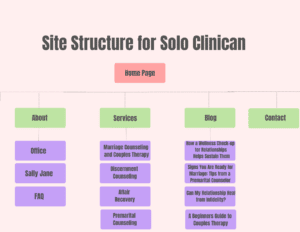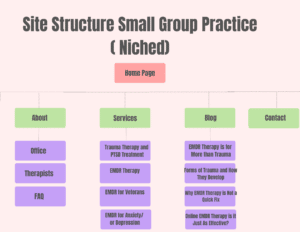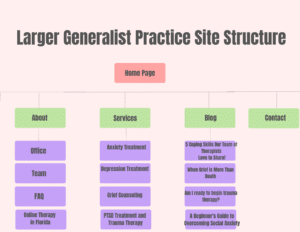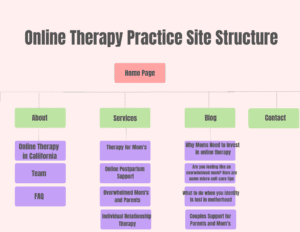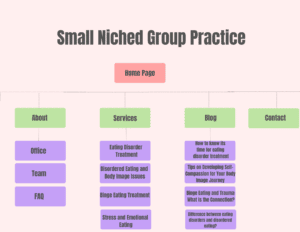Google Analytics has been a trusted companion for website administrators and marketers for years. With the advent of Google Analytics 4 (GA4), there have been significant changes in how user interactions are tracked, with “Events” being at the core of this new paradigm. But what are events, why are they crucial, and how can you set them up in GA4? Let’s dive in.
What Are Events in GA4?
In the realm of digital analytics, “events” refer to user interactions with content that can be tracked independently from a webpage or a screen load. This might include actions like button clicks, form submissions, downloads, or any other user activity that you deem essential to track.
In previous versions of Google Analytics (Universal Analytics), events required a category, action, and label. However, GA4 simplifies and broadens this by considering every interaction as an event. Whether a user clicks a video play button or scrolls 90% down a page, each interaction is treated as an event in GA4.
Why Are Events Important?
- Holistic User Interaction Understanding: With events, you can gauge not just where users are going on your site, but also what they’re doing. It offers a granular understanding of user behaviors and patterns.
- Enhanced Conversion Tracking: By defining certain events as ‘conversions’, you can measure the actions that you value the most on your website, be it sign-ups, purchases, or any other significant interactions.
- User Journey Mapping: Tracking events can help in understanding the user journey better. Knowing which buttons are clicked more often or which video is played the most can offer insights into optimizing user pathways.
- Improved UX/UI Decisions: When you know which elements of your website users are interacting with the most and which ones they’re ignoring, it offers actionable data to improve the overall user experience.
Creating Events in GA4
Setting up events in GA4 is straightforward, thanks to its more user-friendly interface. Here’s a basic guide:
Automatically Tracked Events:
GA4, by default, tracks certain events without any additional configurations, such as page views, scrolls, video plays, etc. So, before setting up a new event, ensure it’s not already being tracked.
Creating Events Using the Web Interface:
a. Log into your GA4 property.
b. Navigate to the ‘Events’ section under ‘Reports’ in the left-hand menu.
c. Click on ‘Create Event’.
d. Here, you can name your event and set up the conditions for when this event should be tracked. For example, you might want to track when a specific button with the CSS class ‘sign-up’ is clicked.
Creating Events Using Google Tag Manager (GTM):
For more complex events or if you’re already using GTM, you can set up events within the GTM interface and send them to GA4.
a. Create a new tag of the type ‘GA4 Event’.
b. Set up the trigger conditions. This could be when a particular form is submitted or when a user clicks a specific element on your page.
c. Test your configuration using the GTM preview mode before publishing.
Enhanced Measurement:
This is a feature in GA4 where certain events are automatically tracked once toggled on, such as scroll tracking or outbound clicks.
Its Crucial to Plan Events Carefully
Remember, while GA4’s event-centric model offers more flexibility, it’s crucial to plan your events carefully. Maintain a consistent naming convention and document each event to keep track as you add more.
Events in Google Analytics 4 offer a comprehensive lens into user behaviors, enabling website administrators and marketers to optimize websites effectively. Whether you’re transitioning from Universal Analytics or starting fresh with GA4, understanding the importance of events and how to set them up will be central to your analytics success. As with any tool, the more refined your setup, the more actionable and beneficial the insights will be.
Best Practices for Managing Events in GA4
While we’ve delved into the ‘what’, ‘why’, and ‘how’ of events in GA4, mastering the art of event tracking also involves some best practices to ensure data accuracy and meaningful insights.
Prioritize Events:
Not all interactions need to be tracked. Prioritize events based on their relevance to your business goals. Tracking every minuscule action can clutter your reports and make analysis overwhelming.
Consistent Naming Conventions:
Consistency is key in event naming. An inconsistent naming structure can lead to confusion and difficulty in interpretation. For instance, use ‘signup_button_click’ and ‘download_button_click’ rather than mixing formats like ‘SignupClick’ and ‘btnDownload’.
Collaborate with Teams:
Ensure that everyone involved – be it your marketing team, developers, or UX designers – understand the events being tracked. Collaboration ensures that the data collected aligns with both business and user experience goals.
Regular Audits:
As your website evolves, some events might become redundant, or new important interactions may emerge. Conducting regular audits ensures that your event tracking remains relevant.
Use Event Parameters:
In GA4, you can add parameters to events, providing additional data about the user’s action. For instance, for a ‘video_play’ event, parameters might include ‘video_title’ or ‘play_duration’. These nuances offer deeper insights.
Debug and Test:
Before finalizing any event, use the debug mode in GA4 or the preview mode in Google Tag Manager to ensure your events are firing as intended. This step is crucial to avoid discrepancies in data.
Educate and Train:
The landscape of digital analytics is always evolving. Ensure that you and your team stay updated with GA4’s features, changes, and best practices. Consider official Google Analytics courses or trusted third-party training programs.
Leverage User Properties:
In conjunction with events, GA4 allows for user properties – attributes attached to users. While events track what actions users take, user properties can provide context, like user preferences or segmentation.
In Conclusion
Mastering events in Google Analytics 4 is not just about technical setup, but also about strategy and foresight. The more refined and thoughtful your approach, the clearer and more actionable your insights will become.
GA4’s event-centric model is powerful, providing businesses the flexibility and granularity needed in today’s complex digital landscape. By understanding, prioritizing, and continually refining your event tracking, you’ll be better equipped to make data-driven decisions that drive growth and enhance user experience.
Harness the power of your data and start focusing on building quality SEO for your website with our team at Simplified SEO Consulting!
Begin Improving Private Practice SEO with Simplified SEO Consulting
Are you ready to take your website analytics to the next level? As digital analytics undergoes a significant shift with GA4, understanding the concept of events becomes crucial. Track user actions, such as button clicks, form submissions, and downloads, to unlock holistic user interaction understanding and enhance conversion tracking. With a client-centered and user-friendly approach, setting up events in GA4 has never been easier. GA4’s event-centric model empowers you to illuminate the path to digital success. So, embrace the change, let our team at Simplified SEO Consulting optimize your website, and take the first step towards data-driven growth—unleash the power of Google Analytics 4 events now.
- Apply to work with Simplified SEO Consulting
- Meet with an SEO specialist
- Begin SEO services for therapists
Other Services Offered with Simplified SEO Consulting
SEO is an ever-changing field. This is why we are happy to offer a number of services in support of your private practice. We are happy to offer support with our Done For You SEO Services and DIY Online SEO Courses. We also offer a 12-week Done With You Intensive SEO Program as well. Please visit our blog to read other informative posts today!
About the Author
Mary is one of the members of our dedicated and knowledgeable SEO Specialists here at Simplified SEO Consulting. She brings with her certification in Google Analytics (Google Analytics IQ Certification). And she also understands the importance of analytics and their application. She loves staying up to date on all things analytical in order to bring clients the most informed service possible.











 One of these strategies that has been around for a while is known as
One of these strategies that has been around for a while is known as  Finally, it is also worth noting that not all directories are credible. You never want to pay for something that will promise you a large number of high quality backlinks. This could be seen as a
Finally, it is also worth noting that not all directories are credible. You never want to pay for something that will promise you a large number of high quality backlinks. This could be seen as a 

 Optimizing your private practice website for SEO
Optimizing your private practice website for SEO Creating content around your therapy niche and speaks directly to your ideal client
Creating content around your therapy niche and speaks directly to your ideal client